Asia
Auto Added by WPeMatico
Auto Added by WPeMatico
Earlier today, South Korean e-commerce and delivery giant Coupang filed to go public in the United States. As a private company, Coupang has raised billions, including capital from American venture capital firm Sequoia and Japanese telecom giant SoftBank and its Vision Fund.
Coupang’s revenue growth is nothing short of fantastic.
Coupang’s offering, coming amidst the public debut of a number of well-known technology brands, will be a massive affair. Its first S-1 filing indicates that its IPO will raise capital in the range of $1 billion, far larger than the $100 million placeholder that is more common.
But the company’s scale makes its lofty IPO fundraising goals reasonable. Coupang is huge, with revenues north of $10 billion in 2020 and in improving financial health as it scales. And its revenue growth has accelerated.
Perhaps that explains why the company is reportedly targeting a valuation of $50 billion.
This afternoon, let’s dig into the company’s historical growth, its improving cash flow and its narrowing losses. Coupang’s debut will create a splash when it lands, so we owe it to ourselves to grok its numbers.
And as there are other e-commerce brands with a delivery function waiting in the wings to go public — Instacart comes to mind — how Coupang fares in its IPO matters for a good number of domestic startups and unicorns.
The company’s growth across the last half-decade is impressive. Observe its yearly revenue totals from 2016 through 2020:
Sure, some of that 2020 growth is COVID-19 related, but even taking that into account, Coupang’s revenue growth is nothing short of fantastic. And what’s better is that the company has cut its losses in recent years:
Powered by WPeMatico
In a large win for the Korean startup ecosystem, dating powerhouse Match Group announced this afternoon that it would buy social networking company Hyperconnect for a combined cash and stock deal valued at $1.73 billion.
Hyperconnect, which is projected to have $200 million in revenue in 2020 (up 50% from 2019) according to the company, offers two apps — Azar and Hakuna Live — which allow users to connect to each other across language barriers. The two are complementary, with Azar focused on one-to-one video chats and Hakuna Live focused on the online live broadcast market. In their press statement, the companies noted that 75% of Hyperconnect’s revenue originates in Asia.
It’s the largest acquisition to date by Match Group, which also owns the popular dating apps Tinder and Hinge, along with many other assorted properties.
One theme of the acquisition and Hyperconnect’s story is technology. The company built what it describes as “the first mobile version” of WebRTC, a now well-developed standard that is designed to offer resilient peer-to-peer connections between users without relying on a company to serve as a middleman server.
For instance, a video chat between two participants would be transmitted directly between the two of them using WebRTC, without the video being broadcast through Hyperconnect’s servers. That’s designed to improve reliability by removing latency while also reducing the cost of bandwidth for the service to Hyperconnect. WebRTC is now a well-deployed open-source standard, with companies such as Google using it in products like Google Meet.
In addition to its innovative work on WebRTC, Hyperconnect built infrastructure to support two users who speak and text in different languages to interact with each other directly through its apps using real-time translation. In a marketing post on Google Cloud, Hyperconnect is a marquee customer of the cloud service’s speech, real-time translation and messaging APIs.
In the companies’ joint press statement, both sides emphasized R&D and engineering as key wins for the deal. That begs the question then what Match Group is looking to build with its massive new purchase? While the group has largely confined itself to dating, live broadcast and other media verticals may well be in its sights once it acquires the technology from Hyperconnect.
The deal is expected to close in 2021 Q2.
Powered by WPeMatico
When you want to buy a refrigerator or a television, you can walk to the nearby electronics store or visit an e-commerce website like Amazon. But where do you go when you’re looking for parts of a crane, a door or chassis of different machines?
For several businesses globally, the answer to that question is increasingly Zetwerk, a Bangalore-based startup.
The three-year-old startup runs a business-to-business marketplace for manufacturing items that connects OEMs (original equipment manufacturers) and EPC (engineering procurement construction) customers with manufacturing small-businesses and enterprises.
All the products it sells today are custom-made. “Nobody has a stock of such inventories. You get the order, you find manufacturers and workshops that make them,” explained Amrit Acharya, co-founder and chief executive of Zetwerk, in an interview with TechCrunch.
Its customers — there are over 250 of them, up from 100 a year ago — operate across two-dozen industries (including process plants, oil & gas, steel, aerospace, medical devices, apparel and luxury goods) in the infrastructure space, and approach Zetwerk with digital designs they wish to be translated into physical products.
Customers aren’t alone in seeing value in Zetwerk. On Wednesday, the Indian startup said it has raised $120 million in a Series D financing round led by existing investors Greenoaks Capital and Lightspeed Venture Partners. Existing investors Sequoia Capital and Kae Capital also participated in the Series D round.
The new round, which brings Zetwerk’s to-date raise to $193 million, gives the firm a post-money valuation of somewhere between $600 million to $700 million, a person familiar with the matter told TechCrunch. (A quick side note: Zetwerk announced a $21 million Series C round last year, but ended up raising $31 million in that round.)
Zetwerk was co-founded by Acharya, Srinath Ramakkrushnan, Rahul Sharma and Vishal Chaudhary. Long before Acharya and Ramakkrushnan joined forces to tackle this space, they had been contemplating this idea.
Both of them studied at IIT Madras, went to the same exchange program in Singapore, and were colleagues at Kolkata-headquartered conglomerate ITC. While working there, they realized that part of a product manager’s job at the firm was dealing with gazillions of suppliers and the manufacturing items they offered.
The process was archaic: There were no databases, and people couldn’t track shipments.
The early version of Zetwerk, which was a database of suppliers, was a direct response to this. But after listening to requests from customers, the startup saw a bigger opportunity and transformed itself into a full-fledged marketplace with integrations with third-party vendors. Once a firm has placed an order, Zetwerk allows them to keep tabs on the progress of manufacturing and then the shipping. There are also quality checks in place.

Zetwerk website
Zetwerk operates in such a unique space today — Shailesh Lakhani, managing director at Sequoia India, says the startup has defined a new category of marketplace — that by and large it’s not competing with any other firm in India — or South Asia. (The startup competes with domain project consultants in the offline world.)
The opportunity in India itself is gigantic. According to industry reports, manufacturing today accounts for 14% of India’s GDP. Vaibhav Agarwal, a partner at Lightspeed, estimates that the market is as large as $40 billion to $60 billion in India and global trade-tailwinds that creates opportunity to serve international demand.
As more and more companies expand or shift their manufacturing to India — in part due to import duties imposed by India and geo-political tension with China, the global hub for manufacturing — this opportunity has only grown bigger in recent years.
“India has a lot of depth in manufacturing, but much of it has not been tapped well,” said Acharya.
Zetwerk — which grew 3X last year and reported revenue of $43.9 million in the financial year that ended in March, a 20X growth from the year prior — plans to deploy the new capital to expand to more areas of categories, and broaden its technology stack. Consumer goods (which covers items such as mixer grinders and TVs) is an area Zetwerk expanded to last year, and said it accounts for 15% of the revenue it generated in the last six months.
Currently 25 of its customers are in the U.S., Canada, Europe and other international markets. Acharya said the startup plans to open offices overseas this year as it scouts for more international customers.
“We are excited to partner with Zetwerk on the next leg of their journey, as they expand their value proposition globally. Zetwerk’s operating system for manufacturing has digitized multiple supply chains end-to-end, ensuring on-time delivery and high quality standards. This has led to rapid growth in India and internationally, with the potential to quickly become one of the most important manufacturing platforms globally,” said Neil Shah, partner at Greenoaks Capital, in a statement.
Powered by WPeMatico
BukuWarung, an Indonesian startup focused on digitizing the country’s 60 million small businesses, announced today it has raised new funding from Rocketship.vc and an Indonesian retail conglomerate.
The amount was undisclosed, but sources say it brings BukuWarung’s total funding so far to $20 million. The company’s last round, announced in September 2020, was between $10 million to $15 million. Launched in 2019, BukuWarung was founded by Chinmay Chauhan and Abhinay Peddisetty and took part in Y Combinator last year.
Rocketship.vc is also an investor in Indian startup Khatabook, which reached a valuation between $275 million to $300 million in its last funding round. Like Khatabook, BukuWarung helps small businesses, like neigborhood stores called warung, that previously relied on paper ledgers transition to digital bookkeeping and online payments. BukuWarung recently launched Tokoko, a Shopify-like tool that lets merchants create online stores through an app, and says Tokoko has been used by 500,000 merchants so far.
Chuahan, BukuWarung’s president, said it has started making revenue through its payments solution. In total, BukuWarung now claims more than 3.5 million registered merchants in 750 Indonesian towns and cities, and says it is recording over $15 billion worth of transactions across its platform and processing over $500 million in terms of volume.
SMEs contribute about 60% to Indonesia’s gross domestic product and employ 97% of its domestic workforce, but many have difficulty accessing financial services that can help them grow. By digitizing their financial records, companies like BukuWarung can make it easier for them to access lines of credit, working capital loans and other services. Other companies serving SMEs in Indonesia, Southeast Asia’s largest economy, include BukuKas and CrediBook.
BukuWarung will use its new funding to grow its tech and product teams in Indonesia, India and Singapore. It plans to launch more monetization products, including credit, and grow its payments solution this year.
Powered by WPeMatico
For American importers, finding suppliers these days can be challenging not only due to COVID-19 travel restrictions. The U.S. government’s entity list designations, human-rights-related sanctions, among other trade blacklists targeting Chinese firms have also rattled U.S. supply chains.
One young company called International Compliance Workshop, or ICW, is determined to make sourcing easier for companies around the world as it completed a fresh round of funding. The Hong Kong-based startup has just raised $5.75 million as part of its Series A round, boosting its total funding to around $10 million, co-founder and CEO Garry Lam told TechCrunch.
ICW works like a matchmaker for suppliers and buyers, but unlike existing options like Alibaba’s B2B platform or international trade shows, ICW also vets suppliers over compliance, product quality and accreditation. It gathers all that information into its growing database of over 40,000 suppliers — 80% of which are currently in China — and recommends them to customers based on individual needs.
Founded in 2016, ICW’s current client base includes some of the world’s largest retailers, including Ralph Lauren, Prenatal Retail Group, Blokker, Kmart and a major American pharmacy chain that declined to be named.
ICW’s latest funding round was led by Infinity Ventures Partners with participation from Integrated Capital and existing investors MindWorks Capital and the Hong Kong government’s $2 billion Innovation and Technology Venture Fund.
In line with the ongoing shift of sourcing outside China, in part due to the U.S.-China trade war and China’s growing labor costs, ICW has seen more customers diversifying their supply chains. But the transition has limitations in the short run.
“It’s still very difficult to find suppliers of certain product categories, for example, Bluetooth devices and power banks, in other countries,” observed Lam. “But for garment and textile, the transition already began to happen a decade ago.”
In Southeast Asia, which has been replacing a great deal of Chinese manufacturing activity, each country has its slight specialization. Whereas Vietnam abounds with wooden furniture suppliers, Thailand is known for plastic goods and Malaysia is a good source for medical supplies, said Lam.
When it comes to trickier compliance burdens, such as human rights sanctions, ICW relies on third-party certification institutes to screen and verify suppliers.
“There is a [type of] qualification standard that verifies whether a supplier has fulfilled its corporate social responsibility … like whether the factory fulfills the labor law, the minimum labor rights or the payroll, everything,” Lam explained.
ICW plans to use the fresh proceeds to further develop its products, including its compliance management system, product testing platform and B2B-sourcing site.
Powered by WPeMatico
When Apple reports its earnings on Wednesday, you can expect mentions of India on the call.
Apple shipped more than 1.5 million iPhone units in India in the quarter that ended in December, up 100% year-on-year, making this its best quarter in the world’s largest smartphone market to date, according to research firms Counterpoint and CyberMedia.
Thanks to the improved sales of older generation iPhone 11, iPhone XR, iPhone 12 and the newer iPhone SE, Apple doubled its market share in India to 4% in the quarter, the research firms said.
Overall, Apple shipped more than 3.2 million iPhone units in India in 2020, up 60% year-on-year, Counterpoint said.
The shipment growth comes months after Apple launched its online store in the country and offered customers a wide-range of financing and upgrade options, AppleCare+, and lucrative perks such as a free set of AirPods with the purchase of iPhone 11. The company plans to open its first physical retail store in the country later this year.
For more than a decade, Apple has struggled to sell its handsets in India because of the expensive price tags they carry. Most smartphones that ship in India are priced between $100 to $200. Samsung, and a group of Chinese smartphone vendors including Xiaomi, Oppo, and Vivo flooded the market in the past decade with their affordable smartphones.
None the less, in recent years Apple has visibly grown more interested in the country that is also one of the world’s fastest growing smartphones markets. The company’s contract manufacturers today locally assemble a range of iPhone models and some accessories — an effort the company kickstarted more than two years ago. (A recent violent event at an Indian facility of Wistron, one of Apple’s contract manufacturers, however, underscored some of the challenges Apple will grapple with as it looks to scale its local production efforts in the country.)
That move has allowed Apple to lower prices of some older generation iPhone models in India, where for years the company has passed import duty charges to customers. The starting price of the iPhone 12 Pro Max is $1,781 in India, compared to $1,099 in the U.S. (Apple has yet to start locally assemble the iPhone 12 units.) The AirPods Pro, which sells at $249 in the U.S., was made available in India at $341 at the time of launch. AirPods Max, similarly, is priced at $815 in India, compared to $549 in the U.S. (It doesn’t help that an average person in India makes $2,000 a year.)
Unlike most foreign firms that offer their products and services for free in India or at some of the world’s cheapest prices, Apple has focused entirely on a small fraction of the population that can afford to pay big bucks, Jayanth Kolla, chief analyst at Convergence Catalyst, told TechCrunch.
That’s not to say that Apple has not made some changes to its price strategy for India. The monthly cost of Apple Music is $1.35 in India, compared to $9.99 in the U.S. Its Apple One bundle, which includes Apple Music, TV+, Arcade and iCloud, costs $2.65 a month in India.
Powered by WPeMatico
Welcome back to This Week in Apps, the weekly TechCrunch series that recaps the latest in mobile OS news, mobile applications and the overall app economy.
The app industry is as hot as ever, with a record 218 billion downloads and $143 billion in global consumer spend in 2020.
Consumers last year also spent 3.5 trillion minutes using apps on Android devices alone. And in the U.S., app usage surged ahead of the time spent watching live TV. Currently, the average American watches 3.7 hours of live TV per day, but now spends four hours per day on their mobile devices.
Apps aren’t just a way to pass idle hours — they’re also a big business. In 2019, mobile-first companies had a combined $544 billion valuation, 6.5x higher than those without a mobile focus. In 2020, investors poured $73 billion in capital into mobile companies — a figure that’s up 27% year-over-year.
This week, we’re looking into how President Biden’s inauguration impacted news apps, the latest in the Parler lawsuit, and how TikTok’s app continues to shape culture, among other things.
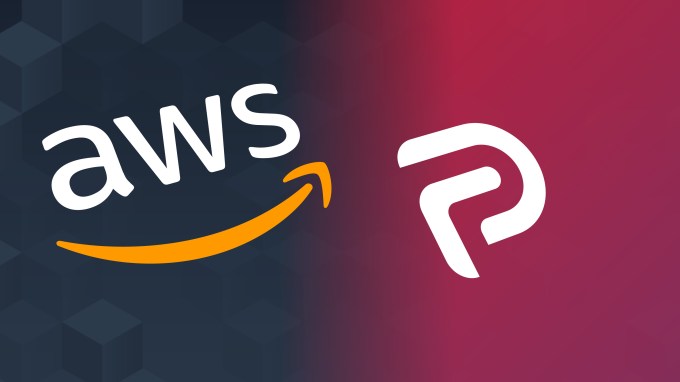
Logos for AWS (Amazon Web Services) and Parler. Image Credits: TechCrunch
U.S. District Judge Barbara Rothstein in Seattle this week ruled that Amazon won’t be required to restore access to web services to Parler. As you may recall, Parler sued Amazon for booting it from AWS’ infrastructure, effectively forcing it offline. Like Apple and Google before it, Amazon had decided that the calls for violence that were being spread on Parler violated its terms of service. It also said that Parler showed an “unwillingness and inability” to remove dangerous posts that called for the rape, torture and assassination of politicians, tech executives and many others, the AP reported.
Amazon’s decision shouldn’t have been a surprise for Parler. Amazon had reported 98 examples of Parler posts that incited violence over the past several weeks before its decision. It told Parler these were clear violations of the terms of service.
Parler’s lawsuit against Amazon, however, went on to claim breach of contract and even made antitrust allegations.
The judge shot down Parler’s claims that Amazon and Twitter were colluding over the decision to kick the app off AWS. Parler’s claims over breach of contract were denied, too, as the contract had never said Amazon had to give Parler 30 days to fix things. (Not to mention the fact that Parler breached the contract on its side, too.) It also said Parler had fallen short in demonstrating the need for an injunction to restore access to Amazon’s web services.
The ruling only blocks Parler from forcing Amazon to again host it as the lawsuit proceeds, but is not the final ruling in the overall case, which is continuing.
@livbedumb♬ drivers license – Olivia Rodrigo
We already knew TikTok was playing a large role in influencing music charts and listening behavior. For example, Billboard last year noted how TikTok drove hits from Sony artists like Doja Cat (“Say So”) and 24kGoldn (“Mood”), and helped Sony discover new talent. Columbia also signed viral TikTok artists like Lil Nas X, Powfu, StaySolidRocky, Jawsh 685, Arizona Zervas and 24kGoldn. Meanwhile, Nielsen has said that no other app had helped break more songs in 2020 than TikTok.
This month, we’ve witnessed yet another example of this phenomenon. Olivia Rodrigo, the 17-year-old star of Disney+’s “High School Musical: The Musical: the Series” released her latest song, “Drivers License” on January 8. The pop ballad and breakup anthem is believed to be referencing the actress’ relationship with co-star Joshua Bassett, which gave the song even more appeal to fans.
Upon its release the song was heavily streamed by TikTok users, which helped make it an overnight sensation of sorts. According to a report by The WSJ, Billboard counted 76.1 million streams and 38,000 downloads in the U.S. during the week of its release. It also made a historic debut at No. 1 on the Hot 100, becoming the first smash hit of 2021.
On January 11, “Drivers License” broke Spotify’s record for most streams per day (for a non-holiday song) with 15.17 million global streams. On TikTok, meanwhile, the number of videos featuring the song and the views they received doubled every day, The WSJ said.
Charli D’Amelio’s dance to it on the app has now generated 5 million “Likes” across nearly 33 million views, as of the time of writing.
@charlidamelio♬ drivers license – Olivia Rodrigo
Of course, other TikTok hits have broken out in the past, too — even reaching No. 1 like “Blinding Lights” (The Weeknd) and “Mood” (24kGoldn). But the success of “Drivers License” may be in part due to the way it focuses on a subject that’s more relevant to TikTok’s young, teenage user base. It talks about first loves and being dumped for the other girl. And its title and opening refer to a time many adults have forgotten: the momentous day when you get your driver’s license. It’s highly relatable to the TikTok crowd who fully embraced it and made it a hit.
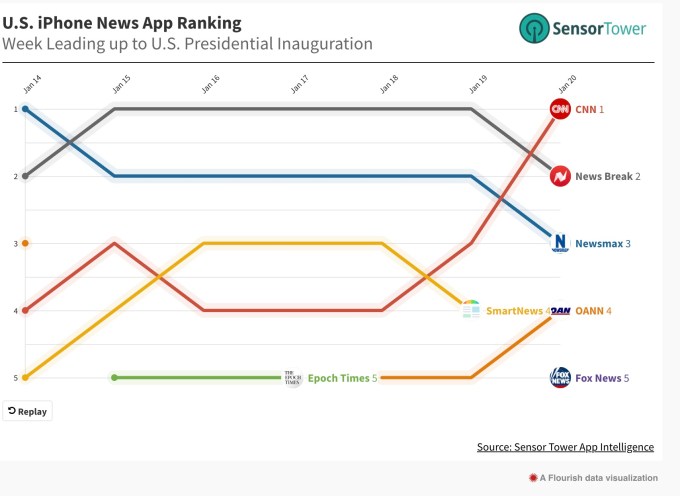

Image Credits: Bodyguard
A French content moderation app called Bodyguard, detailed here by TechCrunch, has brought its service to the English-speaking market. The app allows you to choose the level of content moderation you want to see on top social networks, like Twitter, YouTube, Instagram and Twitch. You can choose to hide toxic content across a range of categories, like insults, body shaming, moral harassment, sexual harassment, racism and homophobia and indicate whether the content is a low or high priority to block.
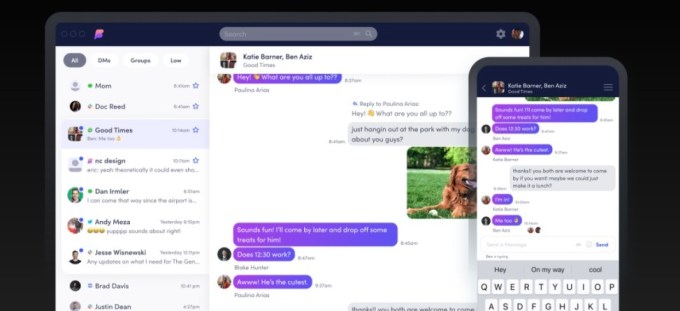
Image Credits: Beeper
Pebble’s founder and current YC Partner Eric Migicovsky has launched a new app, Beeper, that aims to centralize in one interface 15 different chat apps, including iMessage. The app relies on an open-source federated, encrypted messaging protocol called Matrix that uses “bridges” to connect to the various networks to move the messages. However, iMessage support is more wonky, as the company actually ships you an old iPhone to make the connection to the network. But this system allows you to access Beeper on non-Apple devices, the company says. The app is slowly onboarding new users due to initial demand. The app works across MacOS, Windows, Linux, iOS and Android and charges $10/mo for the service.
Powered by WPeMatico
I had my first telehealth consultation last year, and there’s a high probability that you did, too. Since the pandemic began, consumer adoption of remote healthcare has increased 300%.
Speaking as an unvaccinated urban dweller: I’d rather speak to a nurse or doctor via my laptop than try to remain physically distanced on a bus or hailed ride traveling to/from their office.
Even after things return to (rolls eyes) normal, if I thought there was a reliable way to receive high-quality healthcare in my living room, I’d choose it.
Clearly, I’m not alone: a May 2020 McKinsey study pegged yearly domestic telehealth revenue at $3 billion before the coronavirus, but estimated that “up to $250 billion of current U.S. healthcare spend could potentially be virtualized” after the pandemic abates.
That’s a staggering number, but in a category that includes startups focused on sexual health, women’s health, pediatrics, mental health, data management and testing, it’s clear to see why digital-health funding topped more than $10 billion in the first three quarters of 2020.
Drawing from The TechCrunch List, reporter Sarah Buhr interviewed eight active health tech VCs to learn more about the companies and industry verticals that have captured their interest in 2021:
Full Extra Crunch articles are only available to members
Use discount code ECFriday to save 20% off a one- or two-year subscription
Since COVID-19 has renewed Washington’s focus on healthcare, many investors said they expect a friendly regulatory environment for telehealth in 2021. Additionally, healthcare providers are looking for ways to reduce costs and lower barriers for patients seeking behavioral support.
“Remote really does work,” said Elizabeth Yin, general partner at Hustle Fund.
We’ll cover digital health in more depth this year through additional surveys, vertical reporting, founder interviews and much more.
Thanks very much for reading Extra Crunch this week; I hope you have a relaxing weekend.
Walter Thompson
Senior Editor, TechCrunch
@yourprotagonist

Image Credits: Luis Alvarez (opens in a new window) / Getty Images

Image Credits: Bryce Durbin
In the last year, edtech startup Top Hat acquired three publishing companies: Fountainhead Press, Bludoor and Nelson HigherEd.
Natasha Mascarenhas interviewed CEO and founder Mike Silagadze to learn more about his content acquisition strategy, but her story also discussed “some rumblings of consolidation and exits in edtech land.”

Image Credits: Nigel Sussman (opens in a new window)
Last year, U.S.-based VCs invested an average of $428 million each day in domestic startups, with much of the benefits flowing to fintech companies.
This morning, Alex Wilhelm examined Q4 VC totals for Europe, which had its lowest deal count since Q1 2019, despite a record $14.3 billion in investments.
Asia’s VC industry, which saw $25.2 billion invested across 1,398 deals is seeing “a muted recovery,” says Alex.
“Falling seed volume, lots of big rounds. That’s 2020 VC around the world in a nutshell.”

Image Credits: Treedeo (opens in a new window) / Getty Images
In this week’s Decrypted, security reporter Zack Whittaker covered the latest news in the unfolding SolarWinds espionage campaign, now revealed to have impacted the U.S. Bureau of Labor Statistics and Malwarebytes.
In other news, the controversy regarding WhatsApp’s privacy policy change appears to be driving users to encrypted messaging app Signal, Zack reported. Facebook has put changes at WhatsApp on hold “until it could figure out how to explain the change without losing millions of users,” apparently.

Image Credits: Nigel Sussman (opens in a new window)
A big IPO debut is a juicy topic for a few news cycles, but because there’s always another unicorn ready to break free from its corral and leap into the public markets, it doesn’t leave a lot of time to reflect.
Alex studied companies like Lemonade, Airbnb and Affirm to see how well these IPO pop stars have retained their value. Not only have most held steady, “many have actually run up the score in the ensuing weeks,” he found.

Image Credits: Bryce Durbin / TechCrunch
Dear Sophie:
I work in HR for a tech firm. I understand that Biden is rolling out a new immigration plan today.
What is your sense as to how the new administration will change business, corporate and startup founder immigration to the U.S.?
—Free in Fremont

Image Credits: atakan (opens in a new window) / Getty Images
I began my career as an avid TechCrunch reader and remained one even when I joined as a writer, when I left to work on other things and now that I’ve returned to focus on better serving our community.
I’ve been chatting with some of the folks in our community and I’d love to talk to you, too. Nothing fancy, just 5-10 minutes of your time to hear more about what you want to see from us and get some feedback on what we’ve been doing so far.
If you would be so kind as to take a minute or two to fill out this form, I’ll drop you a note and hopefully we can have a chat about the future of the Extra Crunch community before we formally roll out some of the ideas we’re cooking up.
Drew Olanoff
@yoda

Image Credits: Nigel Sussman (opens in a new window)
Last year was a disaster across the board thanks to a global pandemic, economic uncertainty and widespread social and political upheaval.
But if you were involved in the private markets, however, 2020 had some very clear upside — VCs flowed $156.2 billion into U.S.-based startups, “or around $428 million for each day,” reports Alex Wilhelm.
“The huge sum of money, however, was itself dwarfed by the amount of liquidity that American startups generated, some $290.1 billion.”
Using data sourced from the National Venture Capital Association and PitchBook, Alex used Monday’s column to recap last year’s seed, early-stage and late-stage rounds.

Image Credits: Andy Roberts (opens in a new window) / Getty Images
Building a marketing team is one of the most opaque parts of spinning up a startup, but for a deep tech company, the stakes couldn’t be higher.
How can technical founders working on bleeding-edge technology find the right people to tell their story?
If you work at a post-revenue, early-stage deep tech startup (or know someone who does), this post explains when to hire a team, whether they’ll need prior industry experience, and how to source and evaluate talent.

Bustle Digital Group CEO Bryan Goldberg. Image Credits: Bustle Digital Group
Senior Writer Anthony Ha interviewed Bustle Digital Group CEO Bryan Goldberg to get his thoughts on the state of digital media.
Their conversation covered a lot of ground, but the biggest news it contained focuses on Goldberg’s short-term plans.
“Where do I want to see the company in three years? I want to see three things: I want to be public, I want to see us driving a lot of profits and I want it to be a lot bigger, because we’ve consolidated a lot of other publications,” he said.

Image Credits: Laia Divols Escude/EyeEm (opens in a new window) / Getty Images
The U.S. Federal Trade Commission is not a huge fan of personal-care D2C brands merging with traditional consumer product companies.
This month, razor startup Billie and Proctor & Gamble announced they were calling off their planned merger after the FTC filed suit.
For similar reasons, Edgewell Personal Care dropped its plans last year to buy Harry’s for $1.37 billion.
In a harsher regulatory environment, “the path to profitability has become a more important part of the startup story versus growth at all costs,” it seems.
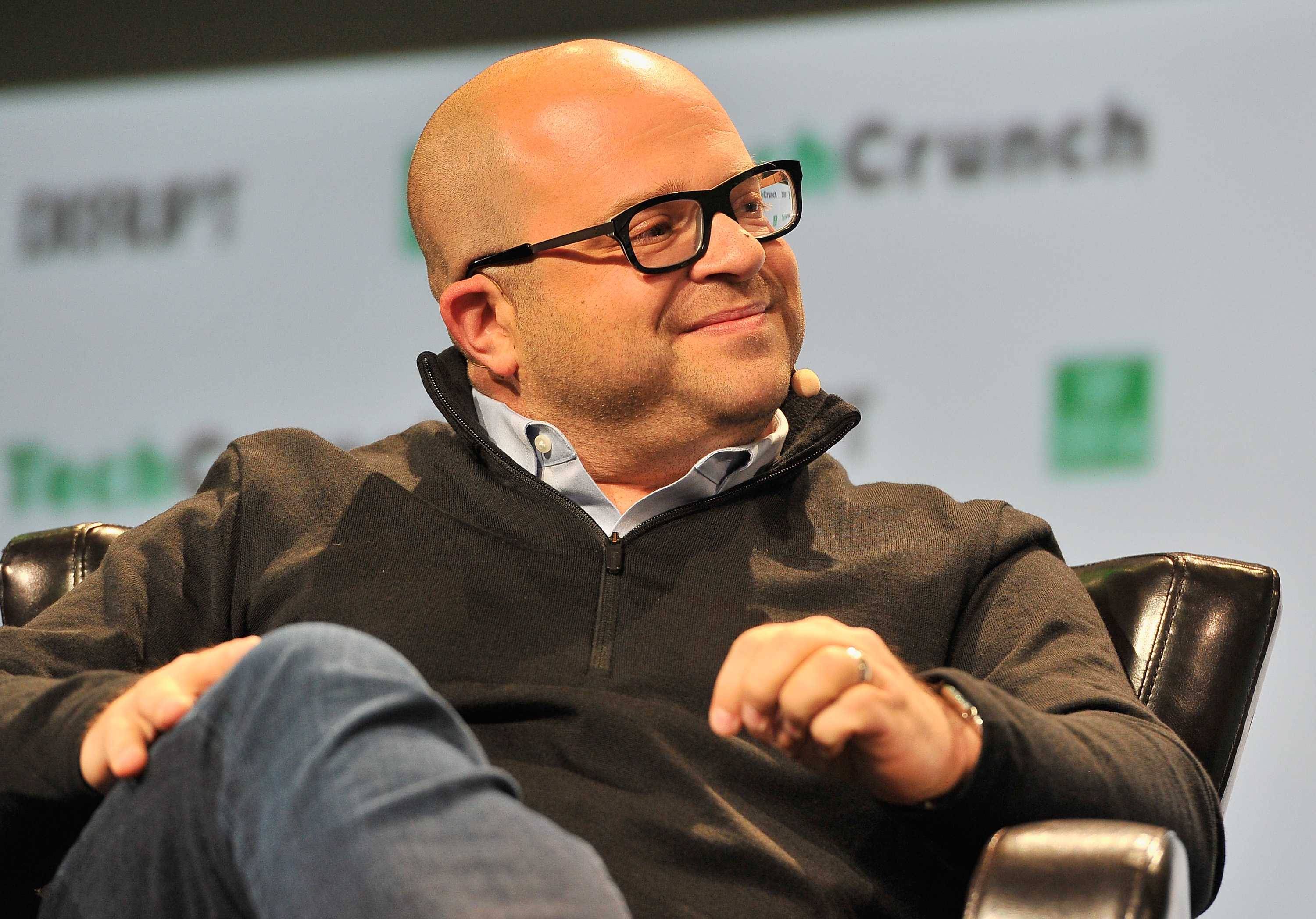
SAN FRANCISCO, CA – SEPTEMBER 12: Founder and CEO of Twilio Jeff Lawson speaks onstage during TechCrunch Disrupt SF 2016 at Pier 48 on September 12, 2016 in San Francisco, California. Image Credits: Steve Jennings/Getty Images for TechCrunch
Companies that build their own tools “tend to win the hearts, minds and wallets of their customers,” according to Twilio CEO Jeff Lawson.
In an interview with enterprise reporter Ron Miller for his new book, “Ask Your Developer,” Lawson says founders should use developer teams as a sounding board when making build-versus-buy decisions.
“Lawson’s basic philosophy in the book is that if you can build it, you should,” says Ron.
Powered by WPeMatico
eSports “total solutions provider” VSPN (Versus Programming Network) has closed a $60 million Series B+ funding round, joined by Prospect Avenue Capital (PAC), Guotai Junan International and Nan Fung Group.
VSPN facilitates esports competitions in China, which is a massive industry and has expanded into related areas such as esports venues. It is the principal tournament organizer and broadcaster for a number of top competitions, partnering with more than 70% of China’s eSports tournaments.
The “B+” funding round comes only three months after the company raised around $100 million in a Series B funding round, led by Tencent Holdings.
This funding round will, among other things, be used to branch out VSPN’s overseas esports services.
Dino Ying, Founder, and CEO of VSPN said in a statement: “The esports industry is through its nascent phase and is entering a new era. In this coming year, we at VSPN look forward to showcasing diversified esports products and content… and we are counting the days until the pandemic is over.”
Ming Liao, the co-founder of PAC, commented: “As a one-of-its-kind company in the capital market, VSPN is renowned for its financial management; these credentials will be strong foundations for VSPN’s future development.”
Xuan Zhao, Head of Private Equity at Guotai Junan International said: “We at Guotai Junan International are very optimistic of VSPN’s sharp market insight as well as their team’s exceptional business model.”
Meng Gao, Managing Director at Nan Fung Group’s CEO’s Office said: “Nan Fung is honored to be a part of this round of investment for VSPN in strengthening their current business model and promoting the rapid development of emerging services and the esports streaming ecosystem.”
Powered by WPeMatico
Darwinbox, which operates a cloud-based human resource management platform, has raised $15 million in a new financing round as the Indian startup looks to expand beyond the country and Southeast Asian markets.
The new round, a Series C, for the Hyderabad-based startup was led by Salesforce Ventures, the venture arm of the American software giant. This is Salesforce Ventures’ one of rare investments in India. Existing investors including Lightspeed India and Sequoia Capital India also participated in the round, which brings the five-year old startup’s total raise to date to $35 million.
Over 500 firms including — Tokopedia, Indorama, JG Summit Group, Zilingo, Zalora, Fave, Adani, Mahindra, Kotak, TVS, NSE, Ujjivan Small Finance Bank, Dr.Reddy’s, Nivea, Puma, Swiggy, Bigbasket — use Darwinbox’s HR platform to provide more than a million employees of theirs with a range of features including insurance and early salary as loans in 60 nations, up from about 200 firms across 50 nations in 2019, said Chaitanya Peddi, co-founder of Darwinbo, in an interview with TechCrunch.
Peddi said the startup has always looked up to Salesforce, and investment from the enterprise giant is “nothing sort of a child receiving validation from their father,” he said.
The fundraise caps the most successful year for the startup that started with uncertainty as the coronavirus spread across Asian nations. The startup took a hit as its customers scrambled to navigate through the global pandemic, but the last two quarters have been its best to date, said Peddi. Overall, the startup’s revenue has ballooned by 300% since September 2019, when it last raised money, he said.
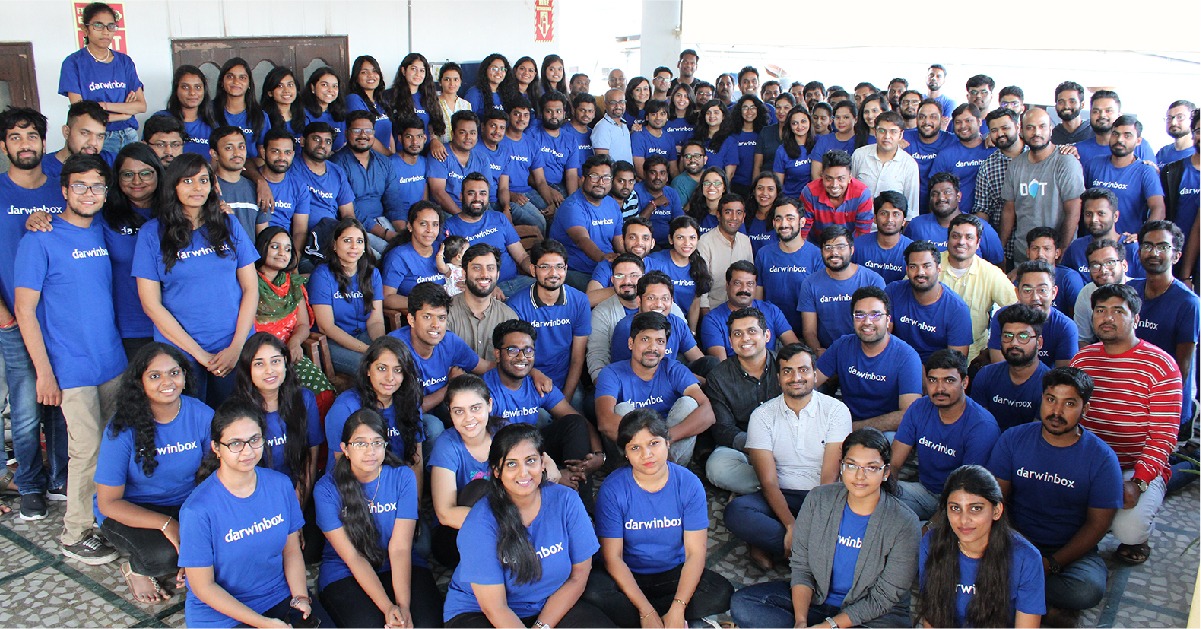
Image Credits: Darwinbox
Darwinbox’s platform is built to take care of the entire “hiring to retiring” cycle needs for employees. It handles onboarding of new hires, keeps a tap on their performance, monitors attrition rate, and provides an ongoing feedback loop.
It also provides its customers with a social network for their employees to remain connected with one another and an AI assistant to apply for a leave or set up meetings with quick voice commands from their phones.
Peddi said the startup will deploy the fresh capital to expand to several more countries, especially in the Middle East, and broaden its offerings.
“India is home to one of the world’s youngest population, and by 2050, it is expected to account for over 18% of the global working age population,” said Arundhati Bhattacharya, Chairperson and CEO, Salesforce India, in a statement. “This makes technology platforms like Darwinbox, that focuses on workforces, incredibly important. I’m proud that Salesforce is supporting Darwinbox on their journey as they continue to grow and innovate in this space.”
More to follow…
Powered by WPeMatico